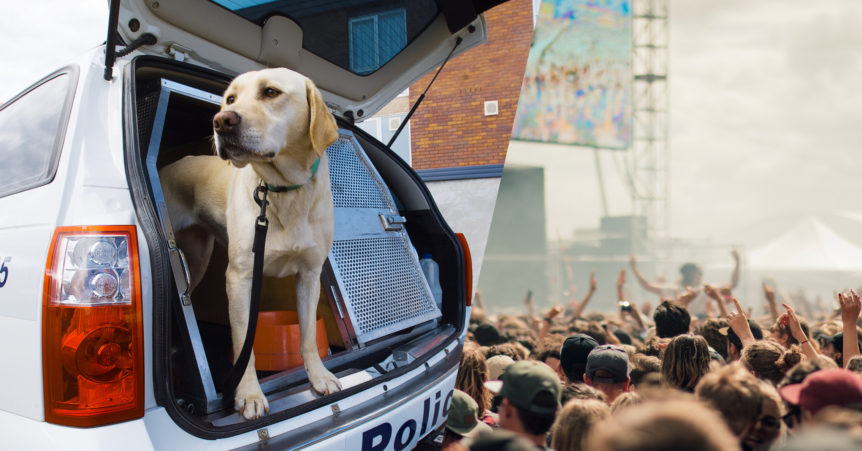AIVL calls for the governments to prioritise human lives.
A few years ago, there was a story about a young woman in Sydney’s west who tragically overdosed and died at a music festival in NSW after taking multiple MDMA tablets for fear of being caught with them by the police. She was 19. This isn’t an isolated story, and it leads one to wonder why our society prioritises locking people up over human life?
Australia’s National Drug Strategy is Harm Minimisation consists of 3 strategies: supply reduction (policing), demand reduction (treatment), and harm reduction (non-judgmental education and support). These 3 strategic approaches to minimise drug-related harm need to be integrated and complementary if the overarching National Drug Strategy is to achieve its objectives. There’s now significant evidence that police sniffer dog operations do not reduce rates of drug use, but they do impact drug use patterns to increase risk-taking behaviour and cause unintended harms including ‘panic swallowing’ resulting in medical emergencies and death from overdose (reference the 3 hyperlinks below). Even Coronial inquest inquiries have recommended Australian governments end the use of sniffer dogs in favour of harm reduction approaches like drug checking /’pill testing’ services. ( Inquest into the death of six patrons of NSW music festivals & Coroner calls urgent drug testing services )
Drug use is prevalent in Australia, and it occurs across all sectors and demographics of society, with about half of the population disclosing lifetime use of illegal drugs. Despite this high rate of drug use prevalence, stereotypes prevail that mislead us into believing the drug use occurs in limited contexts, like music events and festivals. Such stereotypes may seem to justify targeted police operations, like the use of sniffer dogs at Field Day music festival on new years day that resulted in 83 arrests for possession and 2 for supply. Victoria and NSW are two Australian jurisdictions where drug dog operations are commonplace, but there’s greater awareness of such operations occurring in NSW due to current legal class action and outcries due to children being strip searched.
While 85 arrests may seem like a large number, that intervention didn’t create a drug-free event and alcohol and other drug use was occurring across the nation over new year’s. Using sniffer dogs isn’t the solution to reduce incidents of drug-related harm—it’s costly, undermines public trust in officials, and causes unintended harms. Instead, AIVL urges Australian Governments to work with community members, including AIVL member orgsanisations that represent people who use drugs and their loved ones, to promote health over ad hoc punishment for some people who use drugs in some contexts.
Peer-Reviewed Journal Articles:
- Drug dog affects: Accounting for the broad social, emotional and health impacts of general drug detection dog operations in Australia
- Early Warning System for Illicit Drug Use at Large Public Events: Trace Residue Analysis of Discarded Drug Packaging Samples
- Correlates of higher-risk drug-related behaviours at music festivals in New South Wales, Australia
Media release by Steph Tzanetis ( Principal Project Officer - AIVL)
AIVL is the national organisation representing people who use/have used illicit drugs and is the peak body for the state and territory peer-based drug user organisations.
MEDIA CONTACTS:
Jake Docker, CEO, AIVL – email ceo@aivl.org.au

